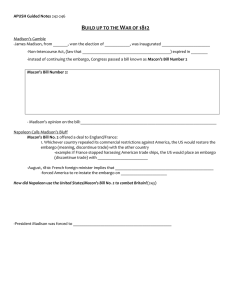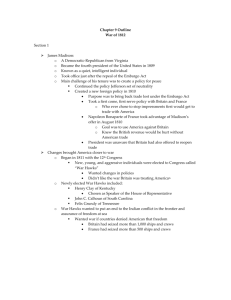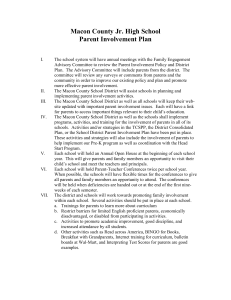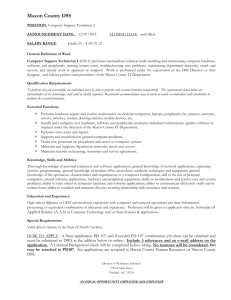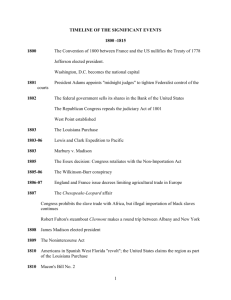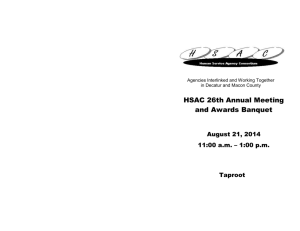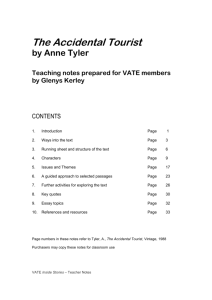Macon's Bill Number 2 Macon's Bill Number 2 was passed by the
advertisement
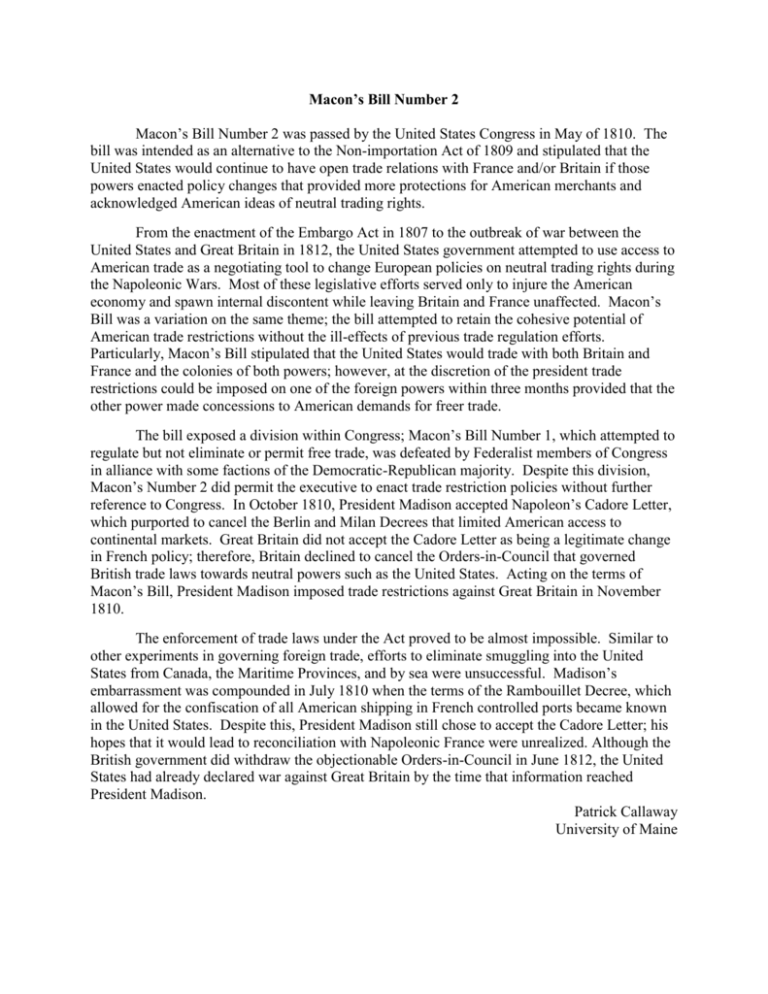
Macon’s Bill Number 2 Macon’s Bill Number 2 was passed by the United States Congress in May of 1810. The bill was intended as an alternative to the Non-importation Act of 1809 and stipulated that the United States would continue to have open trade relations with France and/or Britain if those powers enacted policy changes that provided more protections for American merchants and acknowledged American ideas of neutral trading rights. From the enactment of the Embargo Act in 1807 to the outbreak of war between the United States and Great Britain in 1812, the United States government attempted to use access to American trade as a negotiating tool to change European policies on neutral trading rights during the Napoleonic Wars. Most of these legislative efforts served only to injure the American economy and spawn internal discontent while leaving Britain and France unaffected. Macon’s Bill was a variation on the same theme; the bill attempted to retain the cohesive potential of American trade restrictions without the ill-effects of previous trade regulation efforts. Particularly, Macon’s Bill stipulated that the United States would trade with both Britain and France and the colonies of both powers; however, at the discretion of the president trade restrictions could be imposed on one of the foreign powers within three months provided that the other power made concessions to American demands for freer trade. The bill exposed a division within Congress; Macon’s Bill Number 1, which attempted to regulate but not eliminate or permit free trade, was defeated by Federalist members of Congress in alliance with some factions of the Democratic-Republican majority. Despite this division, Macon’s Number 2 did permit the executive to enact trade restriction policies without further reference to Congress. In October 1810, President Madison accepted Napoleon’s Cadore Letter, which purported to cancel the Berlin and Milan Decrees that limited American access to continental markets. Great Britain did not accept the Cadore Letter as being a legitimate change in French policy; therefore, Britain declined to cancel the Orders-in-Council that governed British trade laws towards neutral powers such as the United States. Acting on the terms of Macon’s Bill, President Madison imposed trade restrictions against Great Britain in November 1810. The enforcement of trade laws under the Act proved to be almost impossible. Similar to other experiments in governing foreign trade, efforts to eliminate smuggling into the United States from Canada, the Maritime Provinces, and by sea were unsuccessful. Madison’s embarrassment was compounded in July 1810 when the terms of the Rambouillet Decree, which allowed for the confiscation of all American shipping in French controlled ports became known in the United States. Despite this, President Madison still chose to accept the Cadore Letter; his hopes that it would lead to reconciliation with Napoleonic France were unrealized. Although the British government did withdraw the objectionable Orders-in-Council in June 1812, the United States had already declared war against Great Britain by the time that information reached President Madison. Patrick Callaway University of Maine FURTHER READING: Heckscher, Eli F.: The Continental System: An Economic Interpretation., ed. Herald Westergaard. (Oxford: Clarendon Press, 1922) Horsman, Reginald. The Diplomacy of the New Republic, 1775-1815. (Arlington Heights: Harlan, 1985)
